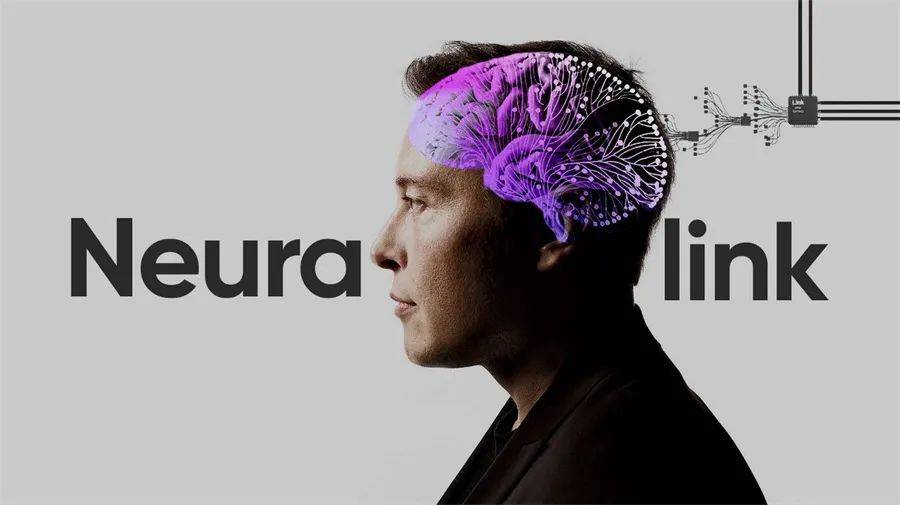

Produced by Sohu Technology
Author|Zheng Songyi
Editor|Yang Jin
According to news on May 26, Neuralink, a brain-computer interface company owned by Tesla founder Elon Musk, officially obtained approval from the U.S. Food and Drug Administration (FDA) on Thursday, local time in the United States. With approval, the first human clinical study will be launched.
It is reported that Neuralink’s brain-computer interface technology will require patients to undergo invasive brain surgery. Its system is centered around Link, a small, round implant that processes and translates neural signals. Link connects to a series of thin, flexible wires that are inserted directly into brain tissue, where it detects neural signals. Patients using a Neuralink device need to learn to use the Neuralink app to control it. According to Neuralink officials, patients will then be able to control external mice and keyboards via Bluetooth connections.
Li Xiaojian, a senior engineer at the Shenzhen Institute of Advanced Technology, Chinese Academy of Sciences and founder of Weiling Medical, told Sohu Technology, “Neuralink’s latest progress has positive value for the development of implantable brain-computer interface technology. Strictly speaking, experiments conducted on cultured cells and mice cannot be considered as brain-computer interfaces. Brain-computer interfaces are not only about collecting signals, but more importantly, about interactions. Interaction requires that the brain of the test subject must be smart enough to interact with the computer. Communication of real information.”
It is understood that scientists have been studying brain-computer interface (BCI) technology for decades, and some companies have developed systems they believe are promising and hope to market them after testing, but have received FDA approval for commercial medical devices. Approval is no easy feat and requires companies to conduct multiple rounds of successful testing and securely collect data.
“The key point of Neuralink’s FDA approval is not actually the technical innovation, but the active help of the US FDA agency to Neuralink to promote the safety compliance of implanted devices and prepare for entering the clinical stage. It provides a possibility.”
Li Xiaojian said that the medical field is different from consumer electronics and is relatively taboo on innovation. Every innovation means bringing more uncertain risks to patients, and in such a short time since the last Neuralink application was rejected Innovation is difficult to achieve.
In his opinion, the difficulty of human trials of brain-computer interfaces mainly lies in two aspects. One is that humans have more violent rejection reactions than small animals, and the human body may not respond significantly to some drugs and motors. For example, many drugs are found to be very effective when tested on mice, but are ineffective when used clinically on humans. Another difficulty lies in breaking ethical concepts and requiring humans to gradually accept experimental surgeries.
Li Xiaojian said, "Human trials may have health risks for trial participants. The risk mainly lies in whether the device can be fixed after being implanted in the brain, and the possible damage to the brain caused by the later removal process. For more than 20 years, the United States We will gradually invite volunteers to participate in implantation trials, and now the risk is minimal."
Neuralink officials said in a tweet, "This is the result of the close cooperation between the Neuralink team and the FDA and represents an important first step. Our clinical trials have not yet started recruiting and more relevant information will be announced soon." Neuralink According to information on the official website, "In the future, we hope to restore abilities such as vision, motor function, and language, and ultimately expand the way we experience the world."
In recent years, Neuralink has been conducting trials on animals. In 2017, Neuralink appeared in the public eye for the first time; in 2019, Musk unveiled Neuralink, demonstrated it with a monkey for the first time, and introduced the company's prototype implant N1 sensor; in 2020, Neuralink improved the equipment and conducted experiments on living pigs Brain-computer interface experiments demonstrate body tracking functions; in 2021, Neuralink caused a sensation by demonstrating that monkeys could complete a table tennis game with their thoughts.
The "Research Report on the Overall Vision and Key Technologies of Brain-Computer Interface (2022)" (hereinafter referred to as the "Report") released by the China Academy of Information and Communications Technology predicts that neural remodeling, neural replacement, and neural regulation brain-computer interface technologies will have A market space of tens of trillions.
The "Report" mentioned that the technologies and products related to neural replacement and neuromodulation are most likely to be the first to be implemented and bring market benefits for implantable brain-computer interface technology. Non-implantable brain-computer interface technology can be used in a wider range of life and production fields, and is gradually bringing benefits to mankind in many aspects such as rehabilitation training, education and entertainment, smart life, production and manufacturing, etc.
Data from the international market research organization IMARC Groupe shows that the global brain-computer interface market size will reach US$1.5 billion in 2021. The agency predicts that by 2027, the global brain-computer interface market will reach US$3.3 billion, equivalent to approximately 23.826 billion yuan.
The above is the detailed content of Dialogue with Li Xiaojian of the Chinese Academy of Sciences: Musk's company has been approved for human trials, which has positive value for the development of implantable brain-computer interfaces. For more information, please follow other related articles on the PHP Chinese website!
 Regular expression usage of arbitrary characters
Regular expression usage of arbitrary characters
 How to buy and sell Bitcoin on Binance
How to buy and sell Bitcoin on Binance
 Is wifi signal amplifier useful?
Is wifi signal amplifier useful?
 The difference between c drive and d drive
The difference between c drive and d drive
 ASUS f83se
ASUS f83se
 Build an Internet server
Build an Internet server
 What are the applications of the Internet of Things?
What are the applications of the Internet of Things?
 How to switch between full-width and half-width
How to switch between full-width and half-width




